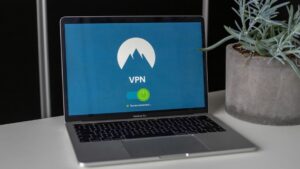
Top 5 Financial Mistakes That Make You Vulnerable to Cybercriminals
How Safe Is Your Financial Data?
In today’s digital age, safeguarding your financial information is more critical than ever. A surprising statistic reveals that around 75% of smartphone users have tried at least one budgeting app. While taking control of your finances seems like a smart decision, many individuals fail to recognize the potential risks these apps pose to their sensitive financial data.
Exposing your financial information not only jeopardizes your bank account but can also lead to severe consequences such as identity theft, overwhelming debt, and disrupted retirement plans. In this article, we’ll explore the five most significant mistakes that could be putting your financial future at risk and, more importantly, how you can avoid them.
Understanding Common Cybersecurity Pitfalls
Navigating the complex world of online security can be challenging. To stay safe, it’s essential to avoid common mistakes that compromise your privacy. Here are five critical errors you should steer clear of:
1. **Neglecting Two-Factor Authentication**
Two-factor authentication (2FA) is a crucial security measure that adds an extra layer of protection to your online accounts, especially those that store your financial information. Always enable 2FA wherever possible to enhance your security.
2. **Failing to Update Software Regularly**
Cybercriminals often exploit vulnerabilities in outdated software. Make it a habit to regularly update your applications, operating systems, and browsers to protect yourself from potential threats. Staying current with updates helps to shield you from known exploits.
3. **Using Unsecured Public Networks**
Accessing sensitive information on public Wi-Fi can be risky. Avoid logging into online banking or making purchases on unsecured networks. If you must use public Wi-Fi, consider employing a trusted VPN to encrypt your online activities and safeguard your financial data.
4. **Reusing Passwords Across Accounts**
Many individuals fall into the trap of reusing passwords, with over half of Americans admitting to this practice. When one account is compromised, hackers often use a method called credential stuffing to access other accounts. To combat this risk, utilize a reliable password manager to create and store complex, unique passwords for each of your accounts.
5. **Overlooking the Risks of Budgeting Apps**
While budgeting apps can be helpful for managing finances, they often share user data with third parties and may request extensive permissions. This raises significant privacy concerns. Before using any budgeting app, carefully review its permissions and data-sharing policies. If possible, consider using your bank’s built-in budgeting tools, which typically offer more privacy and security.
Exploring Safer Alternatives
Many banks provide robust budgeting features within their secure online platforms. Here are some examples of banks that offer excellent budgeting tools:
– **Bank of America:** Features interactive charts to analyze spending trends and budget categories.
– **Wells Fargo:** Offers “My Money Map,” which includes personalized budgeting and spending reports.
– **Capital One:** Provides automated budgeting tools through its 360 Checking account.
– **Chase:** Offers integrated budgeting tools with automatic expense categorization and savings goal tracking.
– **Huntington National Bank:** Features tools for expense tracking and setting budget limits, along with a Look Ahead Calendar for payment visualization.
Using your bank’s native tools can provide more accurate and up-to-date information, along with enhanced privacy.
Ensuring Safe Online Shopping Practices
Shopping online is convenient but can expose you to risks if you don’t take precautions. Always shop on reputable websites to protect your sensitive information. Here are some tips to verify the safety of a site before making a purchase:
– Look for HTTPS in the URL, indicating a secure connection.
– Research the retailer’s reputation and read customer reviews.
– Check the site’s privacy policy to understand how your data will be used.
Understanding Data Brokers and Protecting Your Privacy
Most companies collect and share personal data, which can end up in the hands of data brokers. This multi-billion-dollar industry profits from selling your information, sometimes even to scammers. To minimize your exposure, periodically remove your information from these databases. While it’s not a foolproof solution, consistent removal can significantly enhance your privacy and security.
Taking Action to Protect Your Financial Future
It’s easy to overlook these risks in our fast-paced, convenience-driven lives. However, dedicating a few moments to review your security practices can save you from future troubles. Remember to enable two-factor authentication, avoid password reuse, and be cautious of budgeting apps that share your data. Staying vigilant and informed can help you protect both your finances and your loved ones.
Have you made any of the mistakes mentioned in this article? Or do you have additional tips to share? We’d love to hear from you!
For more tech tips and security alerts, consider subscribing to a newsletter focused on cybersecurity and financial safety. Stay informed and protect yourself in today’s digital landscape.

